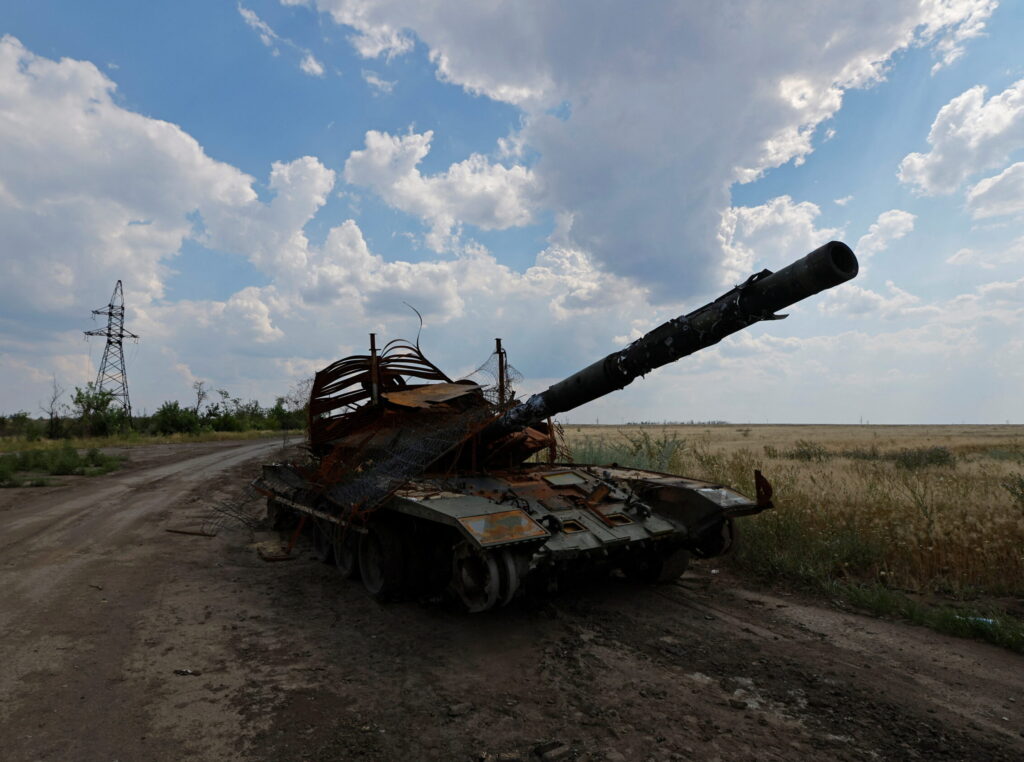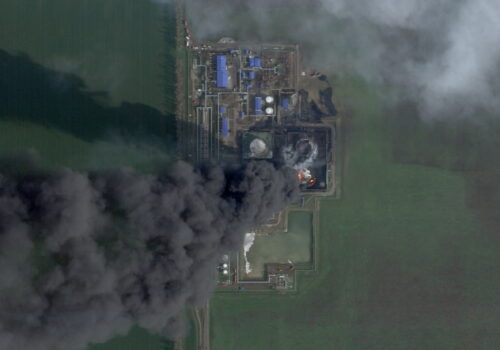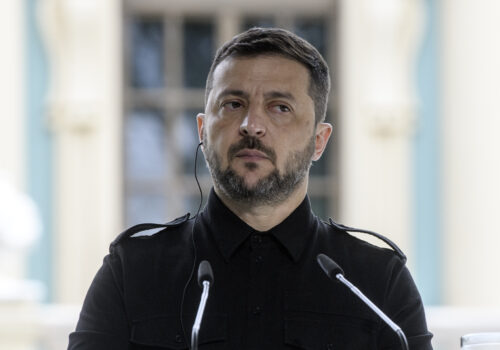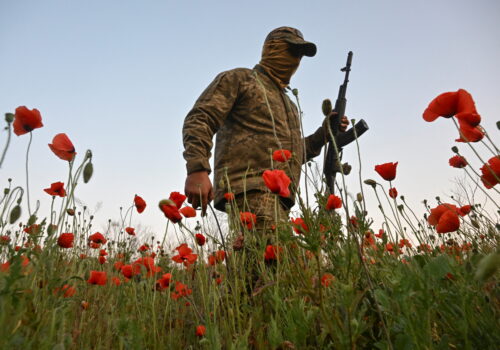During the early months of 2025, there was much speculation that Russia’s coming summer offensive would prove the decisive campaign of the entire invasion. Many thought the Ukrainian army was already close to collapse, with Putin himself declaring in March that “there are reasons to believe we can finish off” Ukrainian forces. The stage seemed set for Russia to finally break Ukraine’s dogged resistance and win the war.
As August gives way to September, it is now abundantly clear that Putin’s big summer offensive has failed. The Russian army has been unable to secure any front line breakthroughs or capture a single major city, with overall Russian advances during the three summer months limited to an estimated 0.3 percent of Ukrainian territory. Crucially, key strategic objectives like Pokrovsk in eastern Ukraine remain in Ukrainian hands.
The Kremlin’s ambitious plans to expand the war into northern Ukraine’s Sumy and Kharkiv regions have also fallen flat. During the initial weeks of the summer offensive in June, a swaggering Putin confidently declared that “all Ukraine is ours” and threatened to seize regional capital Sumy as part of efforts to establish a so-called “security buffer zone” stretching deep inside Ukraine. With the summer season now over, his invading troops find themselves pinned down in a handful of border villages, having been forced to retreat after a series of battlefield reverses.
Russia’s extremely modest recent gains have come at a terrible price. While the Kremlin does not release information about its war dead, conservative estimates of Russian casualties based on open source data suggest catastrophic losses during the summer months numbering tens of thousands. As German journalist and BILD correspondent Julian Röpcke has noted, any sober assessment of Russia’s summer offensive must conclude that it has been a “debacle.”
Stay updated
As the world watches the Russian invasion of Ukraine unfold, UkraineAlert delivers the best Atlantic Council expert insight and analysis on Ukraine twice a week directly to your inbox.
The failure of Putin’s summer offensive should now help to debunk the persistent myth of inevitable Russian victory. For far too long, international perceptions of the war in Ukraine have been distorted by exaggerated notions of Russia’s military might. Perhaps most notoriously, this has led US President Donald Trump to criticize Ukraine for daring to defend itself against a far larger aggressor, while suggesting that Russia is somehow uniquely accustomed to waging and winning wars.
In reality, Russian history has been shaped to a significant degree by military defeats, including a long list of lost wars in the past few centuries alone. Russia suffered a comprehensive defeat against an Anglo-French coalition in the Crimean War of the 1850s. This was followed by a humiliating loss to Japan in 1905, which sparked a revolution. Russia then contrived to lose World War I, despite starting the war on what would eventually be the winning side. This led to the downfall of the Czarist Russian Empire.
In the immediate aftermath of the Russian Revolution, the Bolsheviks lost the 1920 Polish-Soviet War. The Soviet era would also end in defeat, with Russia retreating from Afghanistan in 1988 before losing the Cold War itself. Following the collapse of the USSR, post-Soviet Russia went on to lose the First Chechen War in the mid 1990s.
Despite this very mixed military record, modern Russia has managed to convince much of the outside world that it remains an unstoppable superpower. Putin has embraced the militarism of the Soviet era and brought it into the digital age, combining traditional elements such as annual parades and Hollywood-style blockbusters with viral social media messaging and rampant disinformation campaigns designed to cultivate an image of overwhelming strength.
Putin’s militaristic myth-making has played an important role in shaping the international response to Russia’s invasion of Ukraine. Ever since the outbreak of hostilities in February 2022, Western leaders have allowed themselves to be intimidated by Putin’s projections of power and his liberal use of nuclear blackmail. Rather than providing Ukraine with everything it needs to secure victory, the West has consistently hesitated while citing fear of escalation. This timid approach has merely served to embolden Moscow and prolong the war.
Eurasia Center events

With little actual progress to report on the battlefield, the Kremlin is now reportedly scrambling to inflate its gains in an apparent bid to overawe Western policymakers and persuade them that their continued backing of the Ukrainian war effort is futile. “The Kremlin is trying to convince the West that Russia will inevitably achieve its war goals on the battlefield, such that Ukraine should concede to Russian demands and the West should therefore cease its support of Ukraine,” the US-based Institute for the Study of War noted on August 30.
The facts on the ground tell a different story. While Putin boasts of relentless advances and irresistible battlefield momentum, his army is in many instances still fighting over villages located within walking distance of Russia’s original positions at the start of the full-scale invasion more than three and a half years ago. Over the past one thousand days, Russia has occupied around one percent of Ukraine, while failing to capture a single Ukrainian regional capital. Indeed, the largest city occupied by Russian forces during the whole war remains Rostov in Russia itself, which was briefly seized in June 2023 during the short-lived Wagner mutiny.
Putin’s ability to intimidate Western leaders is his greatest single achievement in a war that has seen his army perform far below expectations. The success of his saber-rattling is a triumph of style over substance that conveniently ignores unfavorable battlefield realities while relying heavily on the West’s own obvious reluctance to confront the Kremlin. As evidence of the Russian army’s limitations continues to mount, this reluctance looks harder and harder to justify.
It would be extremely foolish to underestimate the threat posed by Putin’s war machine, of course. The Russian army dwarfs anything in Europe and is backed by vast quantities of drones, missiles, and air power, along with the kind of ruthless political will that is almost entirely absent in most European capitals. But at the same time, it is vital to recognize that Russian victory in Ukraine is anything but inevitable.
The costly failure of Russia’s recent summer offensive is a clear signal that Putin’s invasion is not going according to plan. For now, the Kremlin dictator shows no sign of compromising and still thinks he can bluff his way to victory, but his army is obviously far more vulnerable that he would like us to believe. If the Ukrainians receive the necessary backing from their allies, recent evidence suggests that they are more than capable of turning the military tide in their favor and forcing Putin to the negotiating table.
Peter Dickinson is editor of the Atlantic Council’s UkraineAlert service.
Further reading
The views expressed in UkraineAlert are solely those of the authors and do not necessarily reflect the views of the Atlantic Council, its staff, or its supporters.

The Eurasia Center’s mission is to enhance transatlantic cooperation in promoting stability, democratic values, and prosperity in Eurasia, from Eastern Europe and Turkey in the West to the Caucasus, Russia, and Central Asia in the East.
Follow us on social media
and support our work
Image: A view shows a destroyed tank near the village of Heorhiivka (Georgiyevka), in the course of Russia-Ukraine conflict in the Donetsk region. July 16, 2025. (REUTERS/Alexander Ermochenko)




